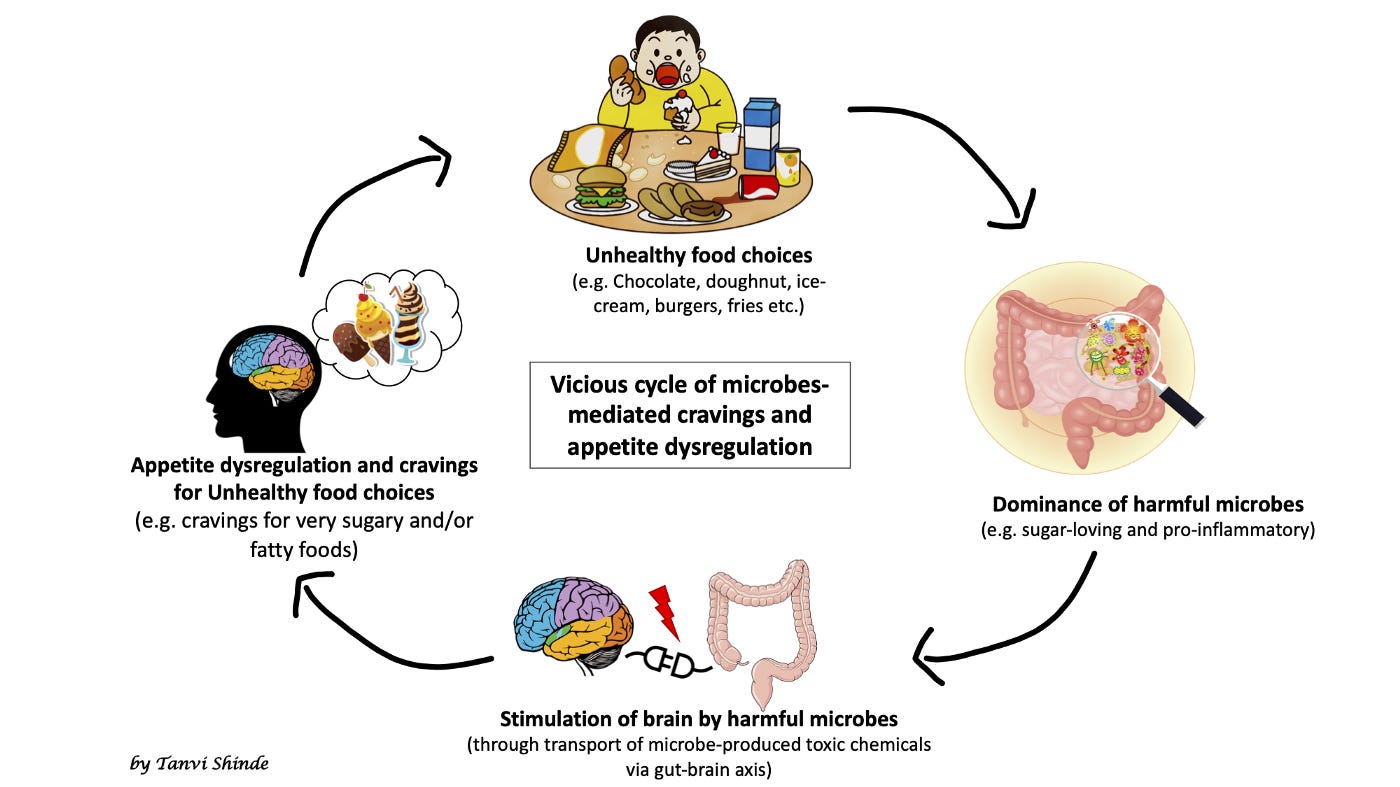Intuitive Eating Is Not For Everyone
Why you shouldn't always listen to your body
In the wellness world, every diet has a new name: Intuitive Eating. People no longer confine their diets to labels like vegan, paleo, or pescatarian. Instead, they claim to have found food freedom by eating foods they’re intuitively drawn to. This means no foods are off-limits, and eating when hungry and stopping when full. Content creators with mostly slim figures and wide smiles are touting intuitive eating as the way to reach your body goals without restriction. So, is this the panacea of all diet problems?
For some people it might be, but probably not for most. I agree with the tenets of intuitive eating and its overall message, but, contrary to what 1.6 million hits for #intuitiveeating might suggest, intuitive eating is not a framework of eating that everyone should adopt.
As with most social media trends, intuitive eating has been largely misconstrued.
For some background, intuitive eating was formalized by dietitians Evelyn Tribole and Elyse Resch back in 1995 in their book Intuitive Eating: A Revolutionary Anti-Diet Approach. Like the book title suggests, the intuitive eating framework is anti-diet and anti-calorie/macro counting. Instead, it focuses on honing in on hunger and satiety cues and treating all foods as equal (not “good” or “bad”). Intuitive eating aims to break people out of vicious binge-restrict cycles, remove guilt and shame from eating, and help people cultivate a healthy relationship with food.
You might be thinking, if I just ate anything I wanted, I’d be eating junk food all day! How is this healthy? Tribole and Resch claim there’s nuance: by tuning into how you feel after eating, you’ll eventually reach for more nutritious foods, since processed/junk food makes you physically feel bad.
If that’s all true, shouldn’t everyone be listening to their bodies? Yes and no — it depends on what your goals are and where you’re at. People who could benefit the most from intuitive eating are those who are overcoming eating disorders or just want to remove stress and anxiety from eating. Intuitive eating is more about the emotions around food, and not so much about the biological effects of food on the body.
If your goals are weight loss or improving health conditions, intuitive eating is not the correct approach. Even Tribole points out in a blog post, intuitive eating is not the right way to lose weight! One of the main reasons? Dysbiosis in the gut microbiome. Everything we eat has an influence on our gut microbiome. Natural, whole foods like fruits and vegetables promote the growth of gut-friendly bacteria, while oily, sugary, and processed foods promote the growth of microbes and not-so-friendly bacteria. Research shows that people who are overweight or obese have more of these microbes, as compared to people who are not overweight. Once there’s an imbalance of bacteria in the gut, it’s called gut dysbiosis.
Like any living microorganisms, microbes want to stay alive and thrive, so they need to continue feeding off of the foods that created them — usually, oily, sugary, processed foods. In order to do this, they will try to make their host (you) eat these foods. This can happen in a couple ways: first, the microbes can induce cravings for sugar or fatty foods by increasing taste receptors in the gut. Second, they can produce toxins that put you in a low, depressed mood, then help release dopamine and serotonin once you eat the foods they want, via the gut-brain axis. Of course, once you eat the processed, sugary foods, more microbes that feed on these foods grow.
This is what the cycle looks like:
So, if you are using intuitive eating to lose weight or work on your physical health, your gut microbiome might “intuitively” lead you to foods that will actually sabotage your goals! This is why we can’t always listen to our bodies or trust our gut. This is also why successful and sustainable weight loss is usually never a question of willpower. I’ve found the most effective path for weight loss, and what I hyperfocus on with my clients, is to correct gut dysbiosis; the weight loss then comes much more effortlessly.
Proponents of intuitive eating often give the example of being like babies; they know what they want to eat and how much. Babies are a good example in that they haven’t been subjected to diet culture and societal programming, but we can’t forget that their gut microbiome also hasn’t been compromised to the extent of the average adult in the West. In this day and age, with all of the processed foods, chemicals, pesticides, sugar, drugs, and alcohol that we’ve all consumed or engaged with in the past, I believe most people cannot achieve their highest state of health by going straight into intuitive eating without doing a bit of structured work first. This applies to improving physical health as well, not just weight loss (remember, being thin does not automatically = being healthy).
On the flip side, if you put in the correct structured work in the beginning and balance gut dysbiosis, intuitive eating and maintaining weight and health goals become one and the same. You will crave mostly health-promoting foods since your gut-friendly bacteria are craving them too. This is the space we all want to be in.
Balancing the gut microbiome and undoing years of diet culture programming takes a bit of work but will produce the best results in the long run. Then, “intuitive eating” can be stripped down to simply eating; choosing certain foods is not exceptional or part of a framework or specific diet — it’s just eating.


